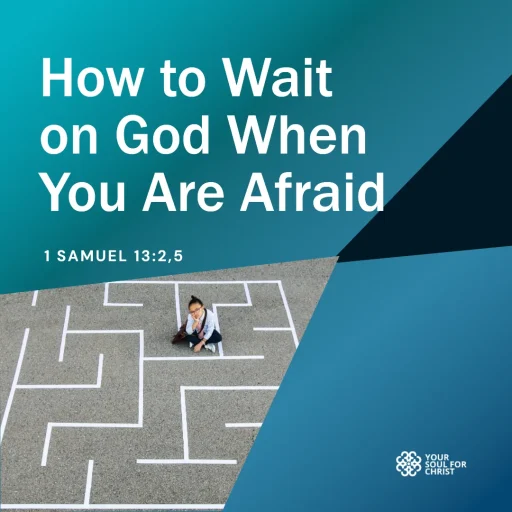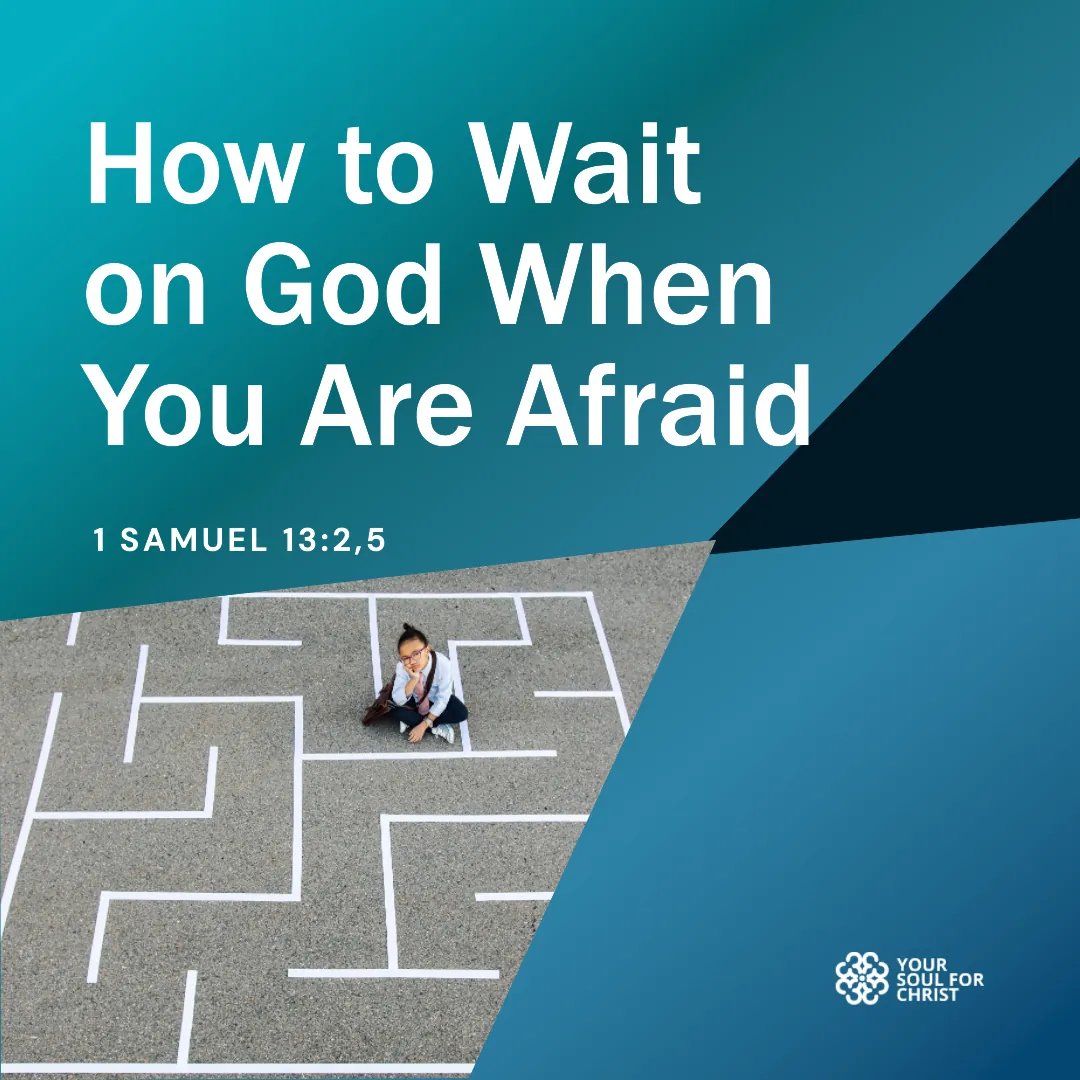Saul chose three thousand men from Israel; two thousand were with him at Mikmash and in the hill country of Bethel, and a thousand were with Jonathan at Gibeah in Benjamin. The rest of the men he sent back to their homes. The Philistines assembled to fight Israel, with three thousand chariots, six thousand charioteers, and soldiers as numerous as the sand on the seashore. They went up and camped at Mikmash, east of Beth Aven.
1 Samuel 13:2,5 NIV
Have you ever faced a situation so daunting, fear gripped your heart? We all experience moments of panic. Perhaps you feel overwhelmed, unsure of the next step. You might wonder, how to wait on God when you are afraid? The story of King Saul shows us a powerful lesson in trusting God’s timing, even when everything feels precarious. It reveals the vital importance of patience during desperate times.
Ancient Israel faced a terrifying threat. The Philistines gathered a vast, formidable army, countless soldiers filled the land (1 Samuel 13:5). In stark contrast, King Saul commanded a much smaller force. He only had 3,000 men, a fraction of the enemy’s strength. These Israelite soldiers were also unseasoned, lacking battle experience. Therefore, fear quickly spread through their ranks.
This devastating news weighed heavily on Saul, their leader. The overwhelming odds created immense pressure. As the Israelites realised their desperate situation, a deep fear took hold (1 Samuel 13:6). Many soldiers deserted their posts. They hid in caves and thickets, seeking any refuge possible. Others fled across the Jordan River, demonstrating extreme terror. Saul remained, but his remaining troops also quaked with fear, highlighting the dire circumstances.
When Fear Leads to Disobedience
Saul faced an incredibly difficult choice. He had waited seven days, the exact time the prophet Samuel appointed for their meeting. However, Samuel had not yet arrived. Saul’s men continued to scatter, increasing his anxiety. God had given Saul clear instructions through Samuel: wait for the prophet to offer sacrifices. These offerings would seek God’s favour and secure victory. Consequently, Saul should have remained patient.
Yet, Saul failed to wait for God to act. He risked missing God’s divine timing. His men kept deserting, so Saul felt compelled to take matters into his own hands. He commanded, “Bring me the burnt offering and the fellowship offerings.” Saul then proceeded to offer the sacrifice himself. Tragically, just as Saul finished the offering, Samuel arrived. This incident powerfully illustrates the challenge of knowing how to wait on God when you are afraid.
Upon his arrival, Samuel confronted Saul, asking, “What have you done?” (1 Samuel 13:11). Saul offered excuses, explaining his men were scattering. He also noted Samuel had not arrived, and the Philistines were assembling. Saul feared the Philistines would attack before he had sought the Lord’s favour. Thus, he felt forced to offer the sacrifice himself. Saul’s attempt to seek God’s favour through disobedience was foolish. God simply wanted his obedience and patience.
The High Cost of Impatience
Saul acted outside his authority. He offered a burnt offering he was not called to make. The enemy often causes us to speculate and fear, drawing us away from God’s plan. Any act against God’s clear instructions signifies a spiritual defeat. Regardless of immediate outcomes, obedience always matters most. Samuel delivered a stern rebuke: “You have done a foolish thing. You have not kept the commands the Lord your God gave you. If you had, he would have established your kingdom over Israel for all time” (1 Samuel 13:13).
Saul’s failure to heed God’s instruction revealed a profound lack of faith and obedience. Samuel then declared, “But now your kingdom will not endure; the Lord has sought out a man after his own heart” (1 Samuel 13:14). This divine declaration highlighted the paramount importance of a heart aligned with God’s will. Saul’s trial revealed his grave failure in obedience and trust. God desired a different kind of leader.
What God Seeks: A Heart for His Will
God sought a man after His own heart. The Easy-to-Read Version clarifies this: the Lord looked for a man who wanted to obey Him. This internal desire to obey God always precedes true obedience. This longing for God, often unseen by others, represents a powerful spiritual reality. This profound desire drives us to seek God’s face. We long to understand His will and His mind.
We seek God’s guidance so we can live according to His divine instructions. A person after God’s heart desires to know God’s thoughts, then act upon them. They strive to understand God’s will and diligently obey it. They seek God’s plans and purposes. This pursuit is not for personal gain. Instead, they wish to join God in accomplishing His divine intentions on earth. God looks for a person ready and willing to do His will.
Living It Out
When fear threatens to overwhelm you, remember Saul’s story. Actively seek God’s heart through prayer and His Word. Trust His timing, even when circumstances seem dire. God seeks a willing heart, ready to obey Him. Embrace patience; God will fulfil His promises.

